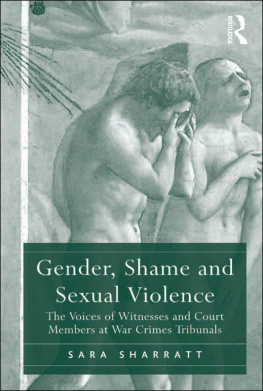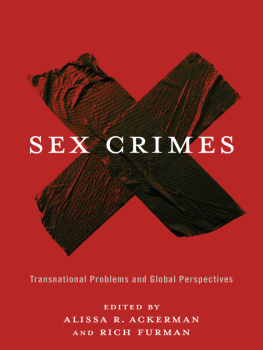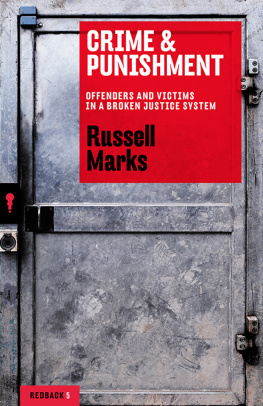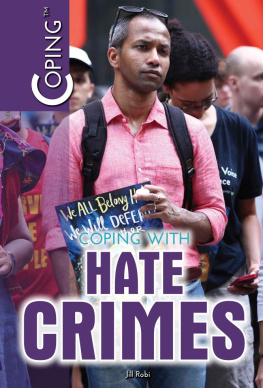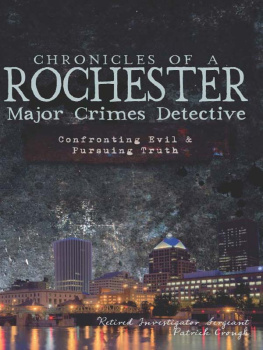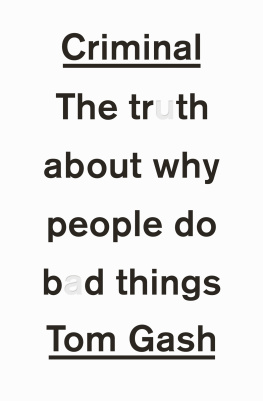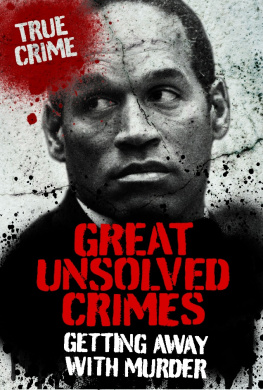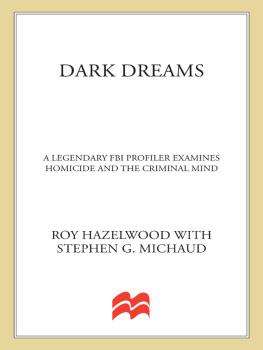

Patrick Tidmarsh
THE WHOLE STORY
Investigating Sexual Crime: Truth, Lies, and the Path to Justice

Contents
About the Author
Patrick Tidmarsh is a leading authority on sexual offending, and the investigation of sexual crime. He trains and lectures all over the world, helping police and other professionals to understand sexual offending, and improve their response to both victims and offenders. He is married to a sexual assault counsellor and has daughters.
for Jacqueline
Introduction
Every sex offender I worked with taught me something. After a time, each conversation reconfirmed an understanding of how they see the world, and the effect they have on everyone around them. The patterns of offender action and victim reaction, whether they targeted adults or children, repeated over and over again. What offenders taught me, most importantly of all, was how to listen to victims.
We all know someone who has been sexually abused in childhood or raped as an adult. You probably know several people, whether you realise it or not. Perhaps you are a survivor yourself. When that person you know was abused or raped, whether it happened once or over a long period, they almost certainly kept it to themselves, at least for a time. Even with recent increases in reporting rates, only about half of adult rape victims will ever tell anyone, even their best friend. Many people think that, if something bad happened to them, they would immediately tell the authorities and seek justice, but that isnt what victims of sexual crime usually do.
A fourteen-year-old girl and her sixteen-year-old boyfriend were in their local park, in the early hours of the morning. After going to a party, they were hanging out for a while before going home, when a group of young men came by. The boyfriend reported that he was physically assaulted and ran for help. The girl reported that she was raped and sexually assaulted, by several of the men. The following day a colleague of mine, and the senior investigator on the case, was being interviewed about the matter by a local radio station. The broadcaster asked if he would answer the many texts being sent in by listeners, to which he agreed. The broadcaster then read out a text which asked, Whats a fourteen-year-old girl doing out at that time of the morning?
My colleague expressed his amazement at the question and, when asked what amazed him, suggested to the listening audience that the first question should have been, Whats a group of men doing raping a fourteen-year-old girl?
So why wasnt that the first question? Why would that listener focus on the actions of a teenage girl, rather than the adult offenders? Was their real question, Please tell me that cant happen to my daughter? Did the world seem safer to that person if they could believe that the girl had somehow brought it on herself? Whatever the reason, their reaction drew them away from where the real responsibility lay. The girl later withdrew her complaint. We should all wonder why.
We might feel as if we know a lot more about sexual offending than we have ever done before. You probably hear something about it almost every day, as stories of sexual harassment, sexual assault, rape, and child sexual abuse are everywhere. We also seem more prepared to listen now, with inquiries leading us to many uncomfortable truths. The foundations of institution and family have been shaken, as we have dared to give them a critical look. What was previously too hard to believe is now almost commonplace. Even the rich and powerful have had their attitudes and behaviour exposed and still most victims do not come forward.
When the senior British politician Harriet Harman published her memoir, she described the sexual harassment she had experienced in her university days. A lecturer, she said, had threatened a diminished grade unless she had sex with him, and guaranteed an A grade if she did. In the publicity around the book she was invariably asked, Why has it taken you so long to come forward? and, Why didnt you say anything at the time? In the interviews I heard or read, no one asked how she had coped, or even sympathised with her predicament. There was little open inquiry, just challenge, suspicion, and doubt.
How we listen to victims and how we ask questions matters. It isnt wrong to question how a victim reacted, but they arent the most important questions, they shouldnt be the first questions and, when they are asked, it needs to be done with care. When we dont interview victims properly, dont listen to them, three things happen: we sound as though we doubt them, they will think we dont believe them, and we wont get the whole story of what happened.
So why dont more victims come forward? The answer is all of us. Our attitudes and what we believe about these crimes, the questions we ask, and what we think we know. It influences everything: who tells, how cases are investigated, who gets their day in court, the way we treat victims when they do get to court, and who gets held accountable for their actions. Think about the last time you heard the story of an alleged sexual offence. What did your mind do when you heard it? Was it deciding what happened filling in the blanks deciding who was telling the truth and who wasnt, even though you didnt know all the facts hadnt heard the whole story? I still find myself doing it and, after more than thirty years listening to these stories, I really ought to know better. Its the old teachings that make us do it, judgments we were taught as children, subsequently reinforced over time, and hard to get out of our heads. Take this case, for example, of a kind all too common in reports to police.
A woman goes for a massage. She works in geriatric care, so massages are a regular part of coping with the physical and mental stresses of her work. When she cant get a booking with her usual masseuse, she opts to try a new clinic that has just opened nearby. Her first impression of the masseur is that he is professional and polite, so it is a slight surprise when he instructs her to remove all her clothing, something she has not been asked to do before. Her alarm is minor, however, and his suggestion that the oil may damage her underwear allows a reasonable explanation for the instruction. She dismisses her concern. Her next anxiety is raised by him not leaving the room so that she may disrobe. He merely turns away to type into his computer. This too is new, so she is unsure how to respond. How might he react if she asked him to leave? It would be awkward and embarrassing, which is not the tone she wants at the beginning of a massage. She also puts her doubt aside when he turns to ask her a question as she is undressing, because he only looks in her eyes and when he doesnt replace the covering towels properly, because its probably just a mistake and when his hands stray close to her nipples. Her brain deals with each alarm individually, not seeing the behaviour as an offenders pattern of manipulation. Why would she? Who goes for a massage imagining the masseur might be a sex offender?
After the abuse, a prolonged act of digital rape during which she lies frozen on the massage table, he doesnt make eye contact. At the end of the ordeal, he says How was that?, and she cant believe the words out of her mouth. Fine, thanks. She is shocked and confused, even paying on the way out without complaint. Asked by the receptionist if she has had a good experience she answers, Yes, thanks. Unsure whether to go to the police, she decides to just put it behind her. In the weeks that follow she is barely able to sleep or eat, her brain full of conflict. She worries people will think she was asking for it. She doesnt understand why she didnt stop him. Blame and shame swirl around her head for days. Two weeks after the assault she drives into the car park at her work and cannot get out of the car. Unable to control her sobbing, and a rising sense of panic, she decides to get some help. Despite the urgings of her sister, she does not go to the police. There is just too much shame and blame from the voices in her head. Some of them are our voices, raising questions, suggesting judgment. Some are old voices from her childhood and adolescence, and some are imagined voices from the justice system she expects to encounter. Reviewing what happened, she sees only her actions and not his. She doesnt know that a specialist sexual crime investigator (if she gets to tell her story to one, and if theyre any good) would immediately see the pattern of the offenders behaviour, understand her reactions without judgment, and be able effectively to investigate her case.
Next page

